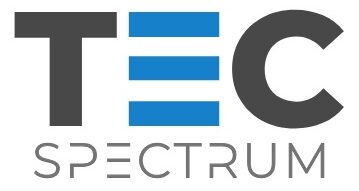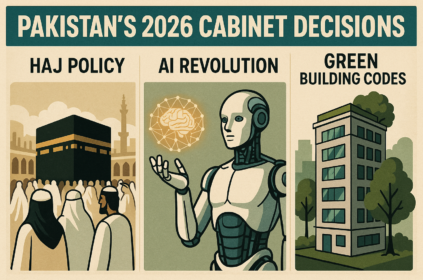In a landmark move, Pakistan’s federal cabinet, chaired by Prime Minister Shehbaz Sharif, approved the country’s first-ever Artificial Intelligence (AI) policy in 2025. This visionary policy, drafted by the Ministry of Information Technology and Telecommunication, positions Pakistan to become a competitive player in the global AI landscape. By fostering a hybrid ecosystem that enhances human intelligence through AI, the policy emphasizes equitable, responsible, and transparent adoption of this transformative technology.
With only 10% of IT professionals in Pakistan currently skilled in AI and related technologies, the government has set ambitious goals to bridge this gap. By 2027, Pakistan aims to train one million individuals, including fresh graduates and seasoned professionals, while recruiting 10,000 trainers to deliver high-impact AI education. This comprehensive framework is built on four pillars, each addressing critical aspects of AI adoption, from awareness to industrial transformation.
In this article, we’ll dive into the details of Pakistan’s AI policy, explore its objectives, and discuss how it will shape the nation’s tech ecosystem. Whether you’re a tech enthusiast, policymaker, or industry professional, this guide will help you understand the policy’s impact and opportunities.
Why Pakistan Needs an AI Policy
Artificial intelligence is revolutionizing industries worldwide, from healthcare to finance to governance. However, Pakistan has lagged in AI adoption due to limited skills, infrastructure, and awareness. The Pakistan AI policy addresses these challenges head-on by:
- Bridging the skills gap: Training a million professionals to meet global AI demands.
- Fostering innovation: Creating an enabling environment for startups and research.
- Ensuring ethical AI: Promoting responsible use to protect privacy and data.
- Driving economic growth: Positioning Pakistan as a hub for AI-driven solutions.
This policy aligns with global AI agendas, ensuring Pakistan remains competitive in a tech-driven world. Let’s explore the four pillars that form the backbone of this transformative initiative.
The Four Pillars of Pakistan’s AI Policy
The policy is structured around four key pillars, each designed to create a holistic AI ecosystem. These pillars ensure that Pakistan’s approach to AI is inclusive, sustainable, and globally relevant.
Pillar 1: Enabling AI Through Awareness and Readiness
The first pillar focuses on preparing Pakistani society for widespread AI adoption. This involves targeted interventions to build awareness, enhance research, and upskill the workforce. Key initiatives include:
- Awareness campaigns: Educating citizens about AI’s potential and applications.
- Curriculum development: Updating educational programs to include AI-related subjects.
- Upskilling programs: Offering bootcamps and short courses through Massive Open Online Courses (MOOCs).
- Research support: Encouraging universities and institutions to prioritize AI innovation.
By fostering a culture of readiness, this pillar ensures that Pakistan’s workforce and institutions are equipped to embrace AI technologies.
Pillar 2: AI Market Enablement
The second pillar aims to create a supportive ecosystem for AI development and deployment. It addresses critical challenges such as data accessibility, standardization, and computational infrastructure. Key strategies include:
- Data accessibility: Promoting open data frameworks to fuel AI innovation.
- Standardization: Establishing guidelines for AI development and deployment.
- Computational resources: Investing in cloud and high-performance computing for AI applications.
- Startup support: Providing incentives for AI-driven startups and entrepreneurs.
This pillar ensures that Pakistan’s AI market is robust, scalable, and attractive to investors and innovators.
Pillar 3: Building a Progressive and Trusted Environment
Trust is a cornerstone of AI adoption. The third pillar focuses on creating a secure and ethical environment for AI use. It emphasizes:
- Data protection: Safeguarding personal and organizational data through robust policies.
- Ethical compliance: Ensuring AI systems adhere to global ethical standards.
- Public trust: Addressing concerns about privacy, bias, and misuse of AI.
- Regulatory frameworks: Developing laws to govern AI applications responsibly.
By prioritizing trust and ethics, Pakistan aims to build confidence among citizens and businesses adopting AI technologies.
Pillar 4: Transformation and Evolution
The final pillar outlines a roadmap for AI integration across all sectors, including governance, healthcare, education, and industry. Key initiatives include:
- Industrial transformation: Encouraging businesses to adopt AI for efficiency and innovation.
- Governance modernization: Using AI to improve public services and decision-making.
- Sandboxing: Creating safe environments to test AI applications before deployment.
- Cross-sector collaboration: Promoting partnerships between government, academia, and industry.
This pillar ensures that AI drives long-term transformation, positioning Pakistan as a leader in tech innovation.
National AI Targets for 2027
Pakistan’s AI policy sets clear, measurable, and inclusive targets to align with global AI agendas. These goals are designed to deliver tangible results and position Pakistan as a hub for AI excellence. Key targets include:
- Training one million professionals: Equipping graduates and professionals with AI skills by 2027.
- Recruiting 10,000 trainers: Building a network of educators to deliver high-quality AI training.
- Establishing AI centers of excellence: Creating hubs for research, innovation, and collaboration.
- Promoting 100+ AI startups: Supporting entrepreneurs to develop AI-driven solutions.
- Achieving global recognition: Positioning Pakistan among the top AI-adopting nations.
These targets are supported by agile execution plans, ensuring rapid progress and measurable outcomes.
How the AI Policy Will Impact Pakistan’s Tech Ecosystem
The approval of Pakistan’s AI policy marks a turning point for the nation’s tech industry. Here are some ways it will drive growth and innovation:
- Economic boost: AI-driven solutions will create jobs and attract foreign investment.
- Global competitiveness: Skilled professionals will position Pakistan as a leader in AI services.
- Startup growth: Incentives and infrastructure will empower entrepreneurs to innovate.
- Improved governance: AI will enhance public services, from healthcare to education.
- Ethical leadership: Pakistan’s focus on responsible AI will set a global benchmark.
By addressing skills, infrastructure, and ethics, the policy creates a foundation for sustainable tech growth.
Challenges and Opportunities
While the AI policy is ambitious, it faces challenges such as limited funding, infrastructure gaps, and public skepticism. However, these challenges also present opportunities:
- Funding partnerships: Collaborating with international organizations to finance AI initiatives.
- Infrastructure development: Investing in cloud computing and data centers.
- Public engagement: Running campaigns to build trust and awareness about AI.
By proactively addressing these challenges, Pakistan can maximize the policy’s impact and unlock its full potential.
How to Get Involved in Pakistan’s AI Revolution
The AI policy opens doors for individuals, businesses, and institutions to contribute to Pakistan’s tech transformation. Here’s how you can get involved:
- Learn AI skills: Enroll in bootcamps or MOOCs to gain expertise in AI technologies.
- Join AI startups: Explore opportunities with emerging AI-driven companies.
- Contribute to research: Collaborate with universities on AI innovation projects.
- Support awareness: Advocate for responsible AI adoption in your community.
- Partner with government: Businesses can align with national AI initiatives.
By participating in this ecosystem, you can play a role in shaping Pakistan’s AI future.
Conclusion
Pakistan’s first-ever AI policy, approved in 2025, is a bold step toward transforming the nation into a global AI hub. With its four pillars—awareness, market enablement, trust, and transformation—the policy addresses every aspect of AI adoption. By training one million professionals, fostering innovation, and ensuring ethical compliance, Pakistan is poised to become a leader in the tech world.
The journey ahead requires collaboration between government, industry, and citizens. Together, we can build a future where AI drives economic growth, improves lives, and positions Pakistan as a global tech powerhouse.














